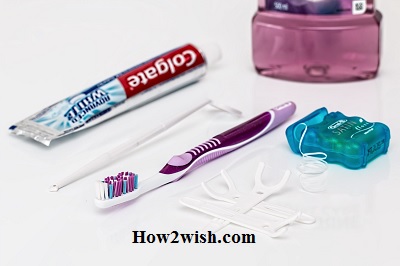A beautiful smile is the dream of many. After all, it is she who allows you to win over those around you and look more confident and friendly. However, to make it truly charming, it is not enough to have only an even snow-white dentition. Swollen, reddened, bleeding gum tissue will not give it beauty. Therefore, it is important to know how and with what it is possible to strengthen loose and weak gums of the teeth at home, and what kind of care to provide for them at home. The specialists of the dental clinic “Dentika” tell about everything in detail.

Causes of hypersensitivity
This condition may develop:
- With various diseases;
- In case of non-observance of elementary rules of hygiene during the care procedures;
- Against the background of individual characteristics of the organism.
The risk of development increases under the influence of the following predisposing factors:
- The presence of bad habits (excessive alcohol consumption, smoking);
- Poor-quality prosthetics or filling;
- Lack of vitamins A, B1, C, E;
- taking certain medicines and pills to strengthen the gums and teeth without consulting a specialist, which can adversely affect the health of both children and adults ;
- Chronic diseases (diabetes and others);
- Hormonal changes;
- Malocclusion;
- Injury;
- Poor nutrition;
- Frequent and prolonged stress;
- Severe systemic disorders;
- Weakening of the immune system.
All of the above increases the risk of swelling, bleeding, and redness of soft tissues.
Now let’s take a closer look at the main causes of the development of pathologies in the oral cavity in people with increased gingival sensitivity.
Vigorous cleaning
Many believe that if they drive the brush more intensively, and apply more pressure on it, this will improve the quality of the hygiene procedure. Choose her accessories with hard bristles, the maximum index of toothpaste abrasiveness. This approach is possible if all teeth are in excellent condition, but is contraindicated with a high predisposition to injury.
For high-quality cleaning, a soft-bristled toothbrush, as well as a low-abrasive tool, is suitable.
Change in hormone levels
Hypersensitivity with the ensuing consequences can be observed as a result of a violation in the endocrine or nervous system, as well as during pregnancy. This is because with hormonal surges, blood circulation worsens. The body does not receive enough trace elements, and the number of harmful microbes in the oral cavity increases markedly.
dental plaque
This is a formation that consists of bacteria, food debris, saliva, mucus, calcium, and phosphate salts. It creates an acidic environment in the mouth. From this, irritation of the dentin begins, and its redness is observed.
Such plaque is formed as a result of non-compliance with hygiene requirements. This causes the gum to move away from the tooth. If timely action is not taken, this is fraught with the development of gingivitis or even periodontitis.
Types of inflammatory gum disease
The reasons listed above are not pathological. It is enough just to eliminate your mistakes to correct the situation. However, hypersensitivity can be triggered not only by them but also by various dental diseases. Let’s consider them in more detail.
Gingivitis
This is inflammation around a particular dental unit. It can occur in both acute and chronic forms. It affects only the gum, while the tooth remains intact.
As a rule, it develops due to the accumulation of pathogenic microorganisms in the oral cavity when hygiene rules are violated. The disease is not very dangerous and is easily treatable. The main thing is not to miss the moment. If the disease is started, it can turn into periodontitis, which is a serious complication.
At the initial stages of the inflammatory process of the dentin, patients experience discomfort in the mouth. There is an increase in tissue volume, their redness. When eating solid food and during brushing, there may be bleeding. Some people complain of increased salivation. In this case, usually in the first stage, pain is absent.
If these signs appear, you should immediately contact your dentist until the situation worsens. Also, the specialists of the dental clinic “Dentika” recommend not to neglect preventive examinations 2 times a year. This will prevent a pathological condition.
The Complete Guide to Occlusion:- What is it, Types and Signs in Dentistry
Periodontitis
With this disease, the tissues that act as support for the dental unit are affected. They are located between the root and the jawbone. The gum gradually moves away from the tooth, forming a so-called pocket. Thus, he becomes exposed and becomes sensitive to external adverse factors. Pathogenic microorganisms and food residues can penetrate the cavity. At the acute stage, pus appears. Molars, incisors, and canines begin to stagger and shift from their place.
This condition is dangerous, it must be treated in a dental clinic. On your own at home, you can aggravate the situation. The disease leads to dementia, that is, to the complete loss of dental units. As a result, you will have to resort to implantation or prosthetics, which will be quite expensive.

Symptoms of inflammatory processes
In order not to miss the moment and contact a specialist on time, it is important to know the symptoms of gum problems. Of course, the main signs will be bleeding and swelling of the tissues. However, they do not appear immediately. First, the following clinical picture is observed:
- Pain with pressure and touch (for example, during brushing, or when eating);
- The occurrence of bad breath;
- Itchy feeling, redness;
- Discomfort when eating food;
- Receding line of dentin;
- White spots;
- Strong pulsation.
In advanced cases, the following symptoms appear:
- The appearance of pus in the formed pockets;
- Reduction in the volume of soft and bone tissues;
- Severe pain, in which even painkillers do not help;
- Severe loosening of the teeth.
It is better not to lead to such symptoms. Remember, the sooner therapy is started, the easier it will be to cure the disease and avoid serious complications.
Treatment and care
While the increased sensitivity of the gums has not led to undesirable consequences, measures must be taken. To do this, you need to know what strengthens the gums of the teeth. First of all, it is important to exclude from life factors that increase the risk of developing inflammatory processes (smoking, alcohol abuse, junk food, etc.). However, remember that all methods listed below must be agreed upon with a specialist. Therefore, a visit to the dentist, in any case, is necessary. Only he can choose effective drugs.
Diet and Nutrients
Proper and balanced nutrition, enriched with useful elements, is the key to the health of not only gums and teeth, but also the body as a whole. To strengthen the mucous membranes and blood vessels, you need to eat foods that contain large amounts of ascorbic acid. It is abundant in citrus fruits and leafy vegetables. Vitamin K has a similar effect. It is present in fresh greens.
Red wine (in a limited amount, no more than a glass) and green tea also bring benefits. These drinks contain tannins and antioxidants, due to which have anti-inflammatory and healing effects and slow down the aging process. Also, the body should receive a sufficient amount of phosphorus, calcium, and zinc. They are found in seafood, garlic, onions, and dairy products.
However, the intake of nutrients with food is not always enough. Therefore, an additional intake of vitamin and mineral complexes is recommended. Moreover, there are special preparations specifically for strengthening the gums and teeth at home. They contain all the necessary elements to improve the condition of tissues, their rapid healing, and recovery from damage. A specialist must select such funds. With the wrong choice, there is a risk that they will not only not give a result, but may even be harmful.

Alternative Medicine Techniques to Treat the Illness
Non-traditional methods are considered safe since the therapy uses recipes exclusively with natural ingredients. However, they still have some contraindications. For example, individual intolerance to active substances. Therefore, it is recommended to consult a doctor beforehand.
How to strengthen the gums with folk remedies at home:
- Tea tree oil. It has disinfecting and wound-healing properties. To prepare a medicinal solution, you need to dilute 2 drops of the extract with ½ cup of clean boiled water.
- Tincture of lime blossom and oak bark. These ingredients are mixed in equal proportions. Enough for 1 tsp. each component. They are filled with 0.5 liters of liquid. Rinse your mouth with this after every meal.
- Cognac. You do not need to drink it, use it only for rinsing. Like any other alcohol, it perfectly disinfects and destroys infections.
- A decoction of burdock herb as a folk remedy to strengthen the gums with swinging teeth. Rinse your mouth at least 2 times a day. To prepare, take 1 tbsp. l. plants pour 500 ml of water and boil. After that, cool, and strain through cheesecloth or a sieve.
Lotions are also highly effective:
- Plantain juice. Soak a cotton pad or gauze pad in it, and apply it to the affected area.
- A decoction of young needles. 3 art. l. boil the needles in 200 ml of liquid for 10 minutes. Leave for at least 7 hours. Soak a cotton pad in it and apply it to the weak area.
Also, a massage that is performed with the thumb and forefinger gives a good result. It is necessary to move vertically, gradually moving from one dental unit to another. Give each section at least 20 seconds. To make the procedure even more effective, you can pre-dip your hands in honey or tea tree oil.
Rinses
You can rinse your mouth not only with folk remedies but also with pharmaceutical preparations, for example, from the ASEPTA series. They contain active substances that destroy pathogenic microorganisms that have a pathological and destructive effect on tissues. They also stop inflammation, reduce bleeding, strengthen dentin, and eliminate unpleasant odors.
Please note that the decision on how to rinse your mouth to strengthen the gums should be made by a qualified specialist, depending on the state of health and the individual characteristics of the patient’s body.
Ointments and gels
The advantage of these products in comparison with rinsing is that the active components linger on the surface for a longer time, have time to penetrate deep structures, and have a therapeutic effect for a longer period.
You can also use products from the ASEPTA professional line. Dentin cream contains propolis. This is a natural component in the medicine for strengthening the gums and teeth, which has an antibacterial, anti-inflammatory, regenerating effect. With regular use, it effectively eliminates the symptoms of hypersensitivity and improves the condition of the tissues themselves. It should be applied twice a day after thorough cleansing. The gel is applied in a thin layer to the affected area. After that, you can not eat or drink for 30 minutes, so that the active ingredients have time to act.
Also, an adhesive balm from the same series gives a good result. It has a sticky pectin base that does not allow saliva to wash it off the surface. For half an hour, it has an antimicrobial effect. The components include the most powerful antiseptic substances: chlorhexidine and metronidazole. They prevent the development of inflammatory processes in the form of gingivitis and periodontitis.
However, these are not all drugs that help with hypersensitivity. The pharmacy has a wide range of products. Make an appointment at the Dentika Dental Clinic so that our specialists will select the most suitable care for you!
Toothpaste to strengthen teeth and gums
Regardless of what provoked the weakening of the dentin, if unpleasant symptoms occur in the form of bleeding, swelling, and redness, first of all, you need to pay attention to what you clean the oral cavity with. During the period of exacerbation, it is recommended to use agents that heal the mucous membranes and stop inflammatory processes. To have this effect, they must contain the following components:
- Chlorhexidine;
- Plant extracts;
- Allantoin;
- various essential oils (menthol, thymol, and others).
You should also choose the right brush for the paste. It should have soft bristles. It is important not to forget to change it once every 3 months.
It is desirable to supplement care with special rinsing liquids that help strengthen the gums. Pay attention to their composition, as depending on this, the effect of rinses will differ:
- With antioxidants – reduce pain, normalize blood circulation in soft tissues;
- With herbs and other herbal ingredients – protect against irritation, promote the speedy healing of ulcers, erosions, and open wounds;
- With chlorhexidine – eliminate inflammation and swelling, and help restore damaged structures.
In addition, such products give freshness to the breath.
Prevention
Any pathological condition and disease are easier to prevent than to spend a lot of time, effort, and nerves on its treatment. Preventive measures include the following recommendations:
- Daily care for the oral cavity, clean properly;
- Eat rationally;
- Give up bad habits;
- Do not neglect the use of additional care products (rinses, balms);
- Do not forget about regular preventive examinations at the dentist (at least once every six months).
All of the above will significantly reduce the risk of problems.
Summing up on How to Strengthen Gums:
The specialists of the dental clinic “Dentika” told me what to do to strengthen the gums at home. You do not need any complicated actions, all the recommendations are extremely simple. If they are observed, it will be possible to normalize the condition of the dentin, to prevent the development of dangerous complications.
